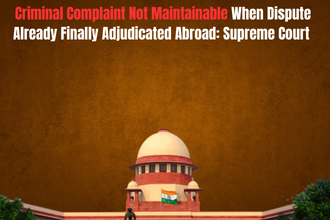New Delhi, April 7, 2025 — In a development closely watched by law aspirants and academic institutions nationwide, the Delhi High Court is set to hear multiple petitions today challenging the validity of the Common Law Admission Test (CLAT) 2025 results.
The CLAT, conducted annually by the Consortium of National Law Universities (NLUs), is a critical national-level entrance exam for securing admission to undergraduate (UG) and postgraduate (PG) law programs across premier National Law Universities. The 2025 examination was held in December 2024, and its results were announced shortly thereafter. However, shortly after the declaration of results, several candidates raised objections regarding the integrity of the paper, alleging that numerous questions were incorrect or ambiguously framed.
Background: Legal Action Following the Result
Soon after the results were released, multiple writ petitions were filed across various high courts in India, including those in Karnataka, Madhya Pradesh, Calcutta, Bombay, and Punjab & Haryana. Petitioners claimed that the alleged errors in the question paper had materially affected their rankings and admission prospects, and therefore demanded either a re-evaluation, revision of answer keys, or an alternate redressal mechanism.
Given the presence of similar petitions in multiple jurisdictions, the matter was taken to the Supreme Court of India, which in February 2025 passed a consolidated order transferring all CLAT 2025 result-related petitions to the Delhi High Court. The move aimed to avoid contradictory decisions and ensure uniform adjudication on this important matter affecting students nationwide.
Supreme Court’s Transfer Order
A three-judge bench of the Supreme Court, led by Chief Justice of India Sanjiv Khanna and comprising Justices Sanjay Kumar and KV Viswanathan, observed that the nature of grievances raised in the petitions was substantially similar. Accordingly, to prevent judicial inconsistencies and duplication of hearings across courts, all such cases were directed to be heard by a single bench at the Delhi High Court.
The bench also noted that, in the event of any similar petitions being filed in other courts in the future, the Consortium of NLUs may place a copy of the Supreme Court’s order to request a transfer to Delhi High Court. This direction set a precedent for centralized litigation concerning national-level academic entrance tests.
Delhi High Court’s Approach: Swift Resolution Urged
At the previous hearing, Justice Devendra Kumar Upadhyay of the Delhi High Court underscored the urgency of the matter. Acknowledging the anxiety and uncertainty faced by thousands of candidates, the court emphasized the importance of expeditious disposal of the case. Justice Upadhyay remarked that prolonged legal delays could severely impact academic admissions and the career paths of the petitioners.
The court signaled its intent to deal with the case with urgency, and urged all parties involved to come prepared with comprehensive submissions in the upcoming hearing.
Consortium’s Response and Preparations
Representing the Consortium of NLUs, the counsel informed the Delhi High Court that the organization acknowledges the concerns raised and is in the process of compiling a detailed report. This compilation will include:
- A list of the questions challenged in the petitions,
- Explanations provided by the academic committee regarding those questions,
- Supporting case law and judicial precedents related to exam disputes.
This submission is expected to aid the court in determining whether there was any academic or procedural lapse in the formulation, evaluation, or publication of the CLAT 2025 results.
Implications for Students and Legal Education
With over 60,000 aspirants appearing for CLAT each year, and only a limited number of seats available in premier NLUs, the stakes in this case are considerable. The Delhi High Court’s decision could lead to one of several possible outcomes:
- The court may uphold the validity of the existing results,
- It may direct a re-evaluation of the disputed questions,
- Or in extreme cases, it may order partial or complete re-testing, though such a step would be rare and consequential.
In any case, the outcome of this litigation will set an important precedent regarding accountability and transparency in national-level competitive examinations.
Also Read: Justice Dipankar Datta: Supreme Court Judge of India
What to Expect in Today’s Hearing
The hearing on April 7, 2025, is expected to set the tone for the case moving forward. Whether the court directs immediate corrective action or seeks further expert input, today’s proceedings will be crucial in deciding the future course of action.
The legal fraternity, law students, and educational policymakers will be closely observing the developments, as the case not only concerns the fate of the current batch of aspirants but may also influence future reforms in the conduct of legal entrance examinations in India.


